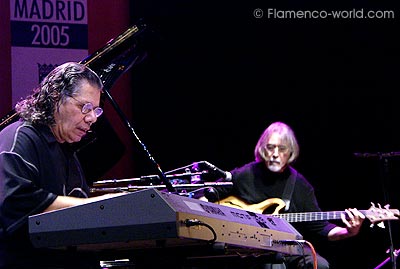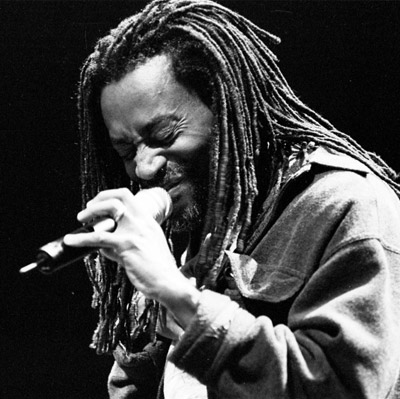In the book, Sting talks about early influences when he was playing jazz in the area where he was born. He notes that at that time, in the late 60's and early 70's, that area was pretty insulated, and nobody of note ever came there. That changed when he went to a concert at the college by Jimi Hendrix. To Sting, the world had just changed from black and white, to color. I can only imagine. But I digress. Again.
 One of the other early performances he saw was a jazz combo that included one Chick Corea. And therein lies the title of this post. Chick Corea has been a keyboard player for a long time. He came and played a concert at the same college where Jimi Hendrix had played only a year or two earlier. Sting notes that this was as cathartic an experience for him as Hendrix was at the time. I have heard Corea music for many years, always on the outskirts of my usual listening. I always seem to put him in the same category as Pat Matheny: Somewhat inaccessible to the general listening public. The result of music in this category, in my view, is that most of us listen to that stuff, and think, what the hell was that...? But that's okay. It's very complex and cerebral. Not exactly hum-along-with-it music. Some would call it noise, and unfortunately, many people categorize most jazz music the same was as a result.
One of the other early performances he saw was a jazz combo that included one Chick Corea. And therein lies the title of this post. Chick Corea has been a keyboard player for a long time. He came and played a concert at the same college where Jimi Hendrix had played only a year or two earlier. Sting notes that this was as cathartic an experience for him as Hendrix was at the time. I have heard Corea music for many years, always on the outskirts of my usual listening. I always seem to put him in the same category as Pat Matheny: Somewhat inaccessible to the general listening public. The result of music in this category, in my view, is that most of us listen to that stuff, and think, what the hell was that...? But that's okay. It's very complex and cerebral. Not exactly hum-along-with-it music. Some would call it noise, and unfortunately, many people categorize most jazz music the same was as a result.Then I was searching around HDNet's programming for the next two weeks (because several of the concerts I had recorded on the TIVO got erased when we were taping the US Open tennis stuff.... bummer...) I digress, for the third time.
 Anyway, as I was searching around I noted a program called Chick Corea Duets: Bobby McFerrin. So I programmed it and looked forward to seeing what those two would come up with. It was very interesting, and I quite enjoyed it.
Anyway, as I was searching around I noted a program called Chick Corea Duets: Bobby McFerrin. So I programmed it and looked forward to seeing what those two would come up with. It was very interesting, and I quite enjoyed it.Further along in Sting's book, he notes being influenced by what Miles Davis was doing in the days between his Bebop stage and the Cool stage. The Seminal recording in this area is Bitches Brew. It represents the flagship of the jazz/fusion era. The album is interesting, and for most people, will fall into that Chick Corea/Pat Matheny category of cacophonous noise that demands the front of your mind, not the back. Sting notes that he was introduced to Miles around this time. He was known as Sting by then. Interestingly, Chick Corea plays on this album as well. Go figure. There are 7 songs on a 2-disc set. With the exception of only one song, they are all more than 11 minutes long, with the longest clocking in at 27 minutes.
Sting had a funny anecdote about that meeting: When the two met, Davis asked him if he could speak French. He replied that he could. Davis handed Sting a piece of paper and asked him to translate it for him. Davis then put him in a vocal booth in the studio, and told him that when he pointed to him, he should yell into the mic what he wrote on the paper. Apparently it was quite crude, and never made it onto the album. Instead, at the end of the last song on the album, Feio, Davis himself is heard talking the song out in a more lighthearted way.
Thought you'd be interested - sorry if you weren't. I will refund the little bits and bytes you used to download this page if you like.
No comments:
Post a Comment